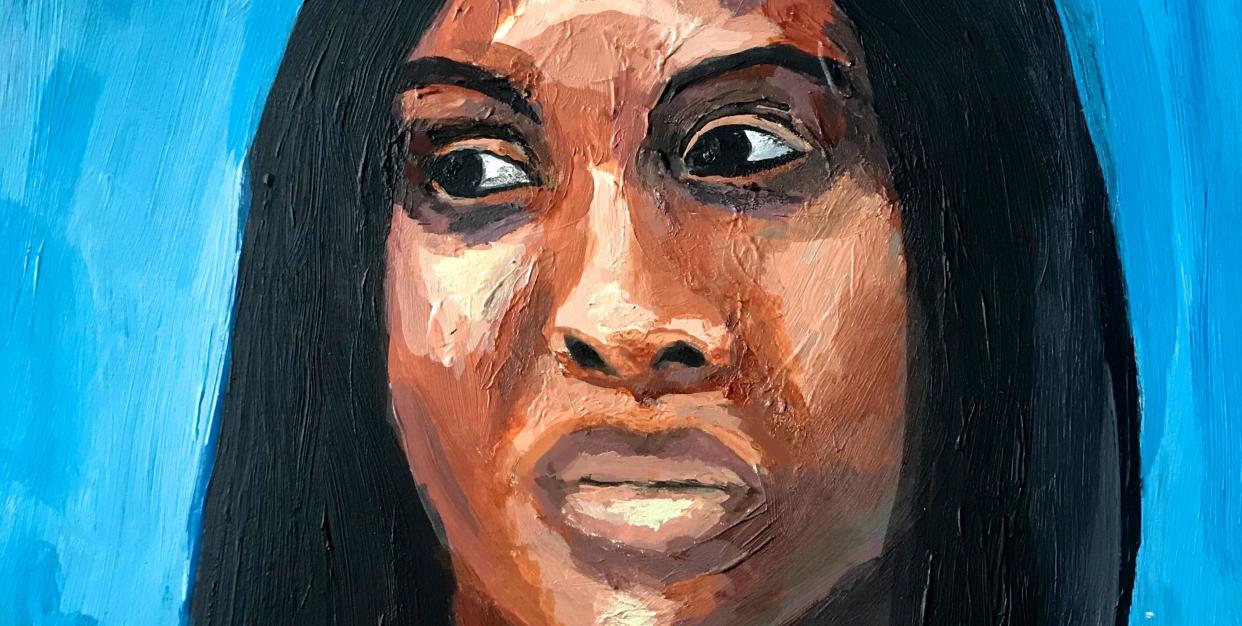Zadie Smith on Raven Leilani’s Debut Novel

I’ve taught creative writing for almost 20 years now and in that time some patterns have emerged. For example: The most bombastic young man in the class often turns out to have written the worst novel. Sometimes the most analytic and brilliant readers make curiously rigid and dull writers. And not infrequently, the seemingly quiet girl, who speaks rarely—but stares at the book in her hand with a strange intensity—is among the best scribblers of the lot. So it was with Raven Leilani.
In class, she used words sparingly and with great consideration, and always listened more than she spoke. My class is a survey course of the 20th-century novel, and the essays she wrote were likewise measured and intense, but they were always solely concerned with the writer in question, never with Raven herself. A reader after my own heart! I knew she was writing her own 21st-century novel, but at that point I hadn’t yet read it, and when she did hand me the first chapters I had no idea what to expect, though I hoped, as I always hope, for something extraordinary.
You know a particularly good novel, I think, when you remember the physical experience of reading it. When you can recall exactly where you were as you read: a certain chair or sofa or house or country. I was in a carrel in NYU’s Bobst Library with a sheath of loose pages in my hand, finding myself the invisible third party on a curious first date between a young black girl called Edie and a middle-aged married white man who, with the consent of his wife, has decided to “open up” his marriage. Edie and the married man have met on an app. They’ve already had plenty of virtual sex but this is their first time meeting in person. And on this IRL date he takes the opportunity to read her a list of preconditions for this extramarital affair, written by his wife.
By the second page I knew I was going to be in the carrel for a while. And from the excruciating premise of those opening pages onward, Luster never lets up, ratcheting up readerly discomfort, provoking laughter and horror, yet with an unexpected tenderness underlying it all.
Raven’s writing is exacting, hilarious, and deadly. When you’re dealing with a very new voice you find yourself grasping for comparisons with which to orient yourself. I thought of Sally Rooney and Muriel Spark, of Toni Cade Bambara and Kathleen Collins. But none of the familiar categories—millennial writing, women’s writing, African-American writing—could quite express or contain the book I was reading, which, with the lightest of touches, skewers our contemporary moment, and announces a writer of exhilarating freedom and daring. You can read a lot of articles in the newspapers about what it is to work in a gig economy in New York City, or be Black and female in the world of dating apps, or simply be young and alive in a world saturated by mediating technology and on the verge of ecological disaster. Such articles are full of statistics and hot takes but what they can’t give you is what I found in Raven’s writing: how being alive right now feels.
What a brave thing, to describe life from the inside, ignoring the prepackaged archetypes supplied by the culture (the “strong Black woman,” “the heroine who triumphs over/is defeated by oppression”) and instead dare to create Edie, a young Black woman frequently in doubt, embarrassed, and unsure, who is passionate and perverse, kind and vengeful, depressed and exhilarated—in other words, human. “If you possess enough courage to speak out what you are,” wrote Richard Wright, another great existential chronicler of Black life from the inside, “you will find that you are not alone.” Raven’s novel made me feel less alone and so excited about the future, both for her as a young Black writer and for the many readers she is surely soon to gain.
Zadie Smith is a New York Times best-selling author and professor of creative writing at New York University. Intimations (Random House), her essay collection about life during lockdown is out now.
Read Zadie Smith’s Intimations
This article originally appeared in the February 2020 issue of Harper’s BAZAAR.
You Might Also Like
